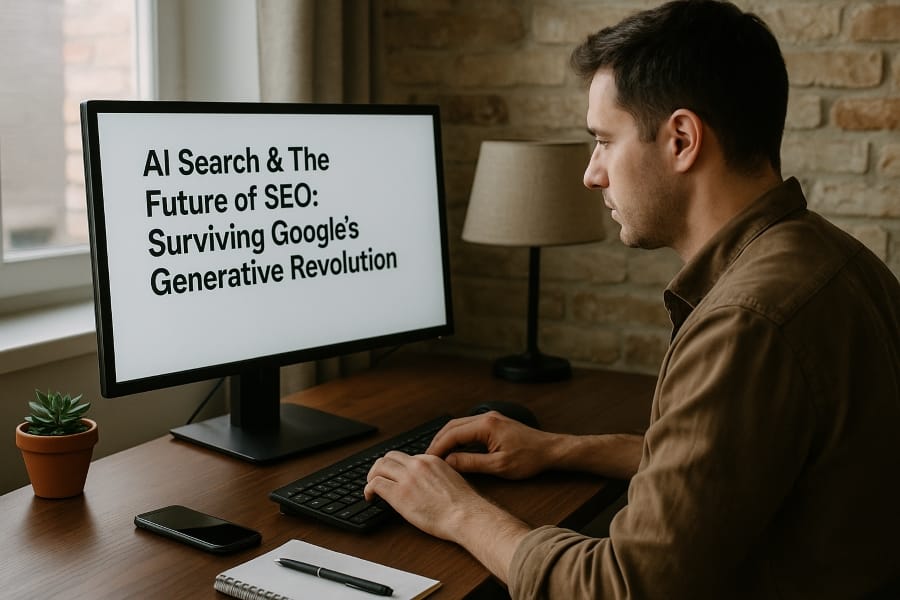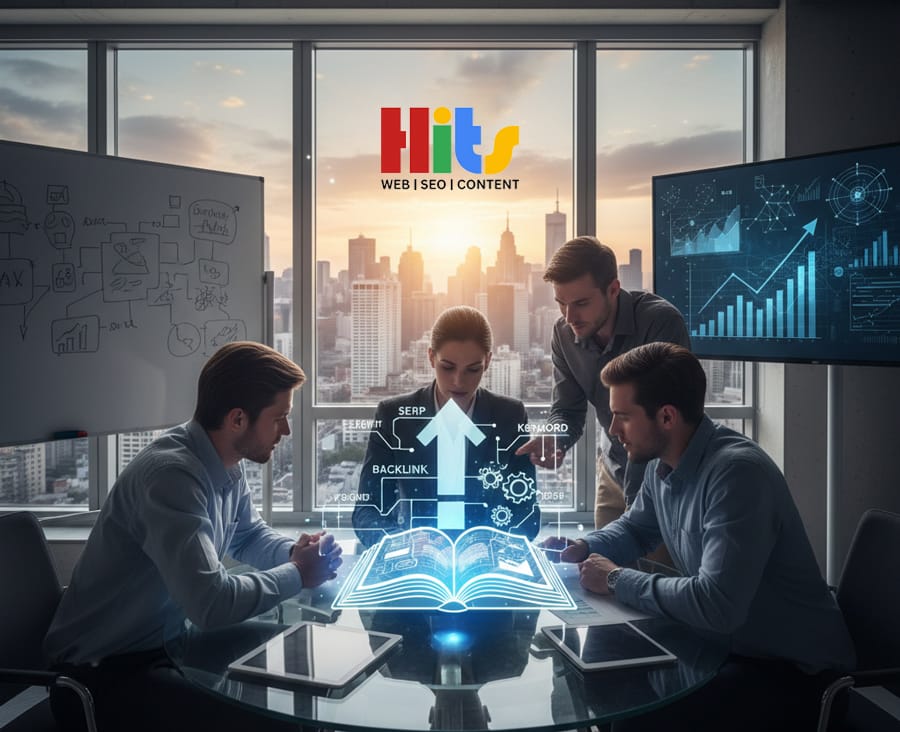Table of Contents
Google’s AI Search Revolution: How SEO, Traffic, and Digital Strategy Are Being Rewritten
Google’s shift to AI-powered search marks the most profound transformation in the search landscape since the company’s founding. As generative AI and conversational answers become the new norm, legacy SEO strategies are rapidly losing their effectiveness. This article explores the new reality for brands, publishers, and marketers—and what you must do to survive and thrive.
Introduction: The End of SEO as We Knew It
For over two decades, SEO has been built around optimizing for Google’s traditional search engine: ranking high in organic results, driving clicks, and capturing intent-driven traffic. But Google’s rapid integration of generative AI—especially with AI Overviews and the new AI Mode—has upended this playbook.
Key Changes:
Organic traffic is vanishing: AI-generated answers often satisfy user queries directly, reducing the need to click through to websites.
SEO strategies are being rewritten: Traditional ranking factors and keyword tactics are losing relevance as Google’s algorithms prioritize intent, expertise, and context over simple keyword matching.
Google’s messaging has been clear: The company has signaled for years that search is moving beyond “ten blue links” to a world of direct answers and intelligent assistance.
Google’s AI Evolution: From Search to Answers
Timeline of Disruption
| Year | Milestone | Impact |
|---|---|---|
| 2023 | Search Generative Experience (SGE) launched in beta | AI-generated answers appear in 84% of test searches |
| 2024 | SGE features roll out more widely | Click-through rates drop, organic traffic declines |
| 2025 | AI Mode and Gemini 2.5 integrated into core search | Multimodal, conversational search becomes the default for many users |
What Is AI Mode?
Google’s AI Mode uses advanced reasoning, breaking down user queries into subtopics and issuing multiple queries simultaneously. This enables deeper, more relevant answers and links to web content, but often means users get what they need without ever leaving Google.
Quote:
“AI Mode is our most powerful AI search, with more advanced reasoning and multimodality… helping you discover even more of what the web has to offer and find incredible, hyper-relevant content that matches your question.”
The Decline of Organic Traffic: Data & Trends
The “Zero-Click” Phenomenon
AI search engines send 96% less referral traffic to websites compared to traditional Google search.
40% of searches now end with AI Overview answers—users get what they need without clicking through.
80% of users in one study said AI answered nearly 40% of their queries with no need to visit a website.
Real-World Impact
For the first time in 22 years, Google’s search traffic is declining, especially on browsers like Apple’s Safari.
Brands and publishers are seeing their once top-ranking content buried beneath AI-generated answers.
The Great Decoupling: Search, Content, and Clicks
Traditional SEO relied on a simple equation:
High ranking = More clicks = More business
AI-powered search breaks this link:
Ranking is no longer enough: Only 46% of sources used in AI-generated answers come from the top 10 organic results.
Featured snippets are survival tools: In many cases, being featured is the only way to appear in AI answers.
Content must be structured for AI: Clear Q&A formatting, schema markup, and authoritative citations are now critical.
Generative Information Retrieval: How AI Changes Everything
How AI Understands Queries
Semantic search dominance: Google now understands relationships, context, and user intent far beyond keywords.
Comparative and contextual analysis: Queries like “best laptop for college” or “ergonomic chairs for back pain” are answered with nuanced, context-aware responses.
The New Ranking Hierarchy
| Factor | 2023 Requirement | 2025 Standard |
|---|---|---|
| Experience | Helpful content | First-hand documented experience |
| Expertise | Author credentials | Verifiable subject mastery |
| Authority | Quality backlinks | Cross-platform reputation |
| Trust | Secure site | Independent verification |
E-E-A-T (Experience, Expertise, Authority, Trust) is now enforced by AI, not just human reviewers3.
Rethinking SEO: Strategies for the AI Era
What No Longer Works
Keyword stuffing and exact-match domains: These are now actively penalized or ignored.
Thin affiliate content: Lacks the depth or authority needed to be featured in AI answers.
Chasing backlinks for quantity over quality: AI now evaluates the reputation and relevance of links, not just their number.
What Works Now
Intent-first content: Understand and address the user’s underlying question or problem.
Depth and originality: AI favors content with unique insights, original research, and multi-format proof (text, video, visuals).
Structured data and schema markup: Make it easy for AI to identify and use your content in answers.
Authoritative signals: Academic citations, expert contributions, and real-world verification (addresses, licenses) are critical.
Actionable Checklist
Audit your content for E-E-A-T compliance
Add schema markup for key data points
Use clear Q&A formatting and bullet points
Update content regularly with substantive changes
Build cross-platform authority (social, forums, publications)
Leverage expert contributors and cite authoritative sources
Tools & Tactics: AI-Driven SEO Solutions
Leading AI SEO Tools
| Tool | Key Features |
|---|---|
| Surfer SEO | SERP analysis, on-page optimization, and AI-driven audits |
| Frase | Content briefs, optimization, and competitor analysis |
| ChatGPT | Content creation, keyword integration, and multilingual support |
| Search Atlas | Keyword clustering, technical audits, and real-time insights |
Example:
A SaaS company used Surfer SEO and Frase to re-optimize its knowledge base, adding schema markup and expert citations. Result: While overall organic clicks dropped, their content was cited in AI Overviews, driving qualified leads and brand exposure.
What It All Means: The Future of Search, Content, and Business
SEO is not dead, but it’s fundamentally changed: The focus is now on feeding AI the best possible answers, not just ranking high for keywords.
Brand visibility depends on being an authoritative, trusted source: If you’re not helping Google’s AI construct answers, you risk becoming invisible.
Content strategy must be holistic: Think beyond Google—AI chatbots, voice assistants, and vertical search are all part of the new ecosystem.
Google’s AI-powered search is not just a feature update—it’s a paradigm shift. The brands and publishers who adapt quickly, prioritize authority, and embrace AI-driven tools and strategies will continue to thrive. Those who cling to legacy SEO tactics risk fading into obscurity.
The new SEO reality:
Either help Google’s AI construct answers, or become invisible in the search-driven world of tomorrow.
👉 Struggling to stand out online? Our integrated approach to web design, SEO, and content writing will attract more customers and drive real results. Discover the difference we can make – contact us now!
FAQ: Your Top Questions Answered
Q: Is SEO still relevant in the age of AI search?
A: Yes, but the rules have changed. SEO is now about creating authoritative, well-structured, and intent-driven content that AI can use in its answers.
Q: Why is my organic traffic dropping?
A: AI-generated answers and zero-click searches are satisfying user queries directly on Google, reducing the need for users to visit your site.
Q: How can I get my content featured in AI answers?
A: Use clear Q&A formatting, add schema markup, cite authoritative sources, and ensure your content demonstrates E-E-A-T.
Q: Are keywords still important?
A: Keywords matter less than intent and context. Focus on understanding what users want and structuring your content to answer those needs.
Q: What tools can help me adapt to AI-driven SEO?
A: Surfer SEO, Frase, ChatGPT, and Search Atlas are leading solutions for content optimization, technical audits, and competitive analysis.
Q: Should I focus on other channels besides Google?
A: Absolutely. AI chatbots, social platforms, and niche search tools are all gaining ground as sources of information and discovery.




